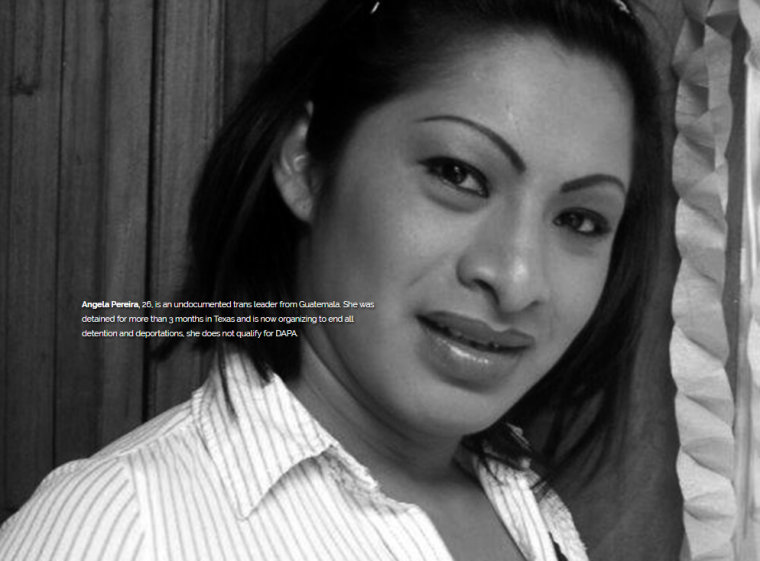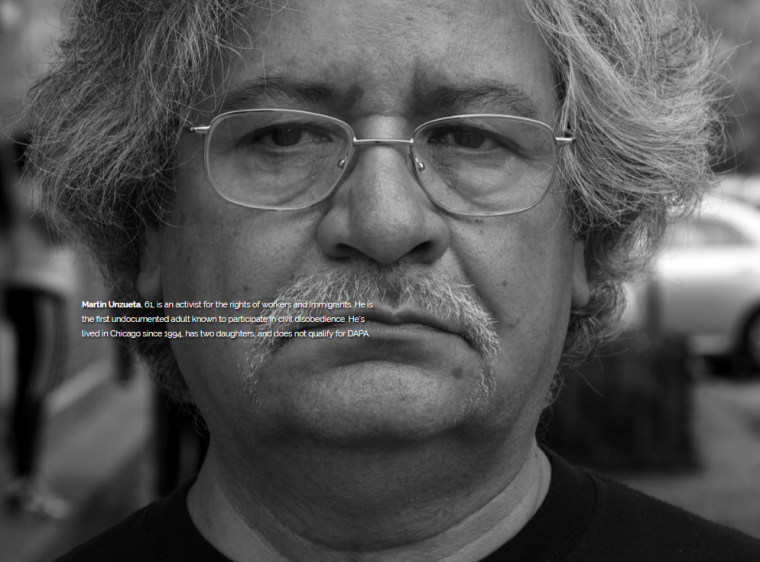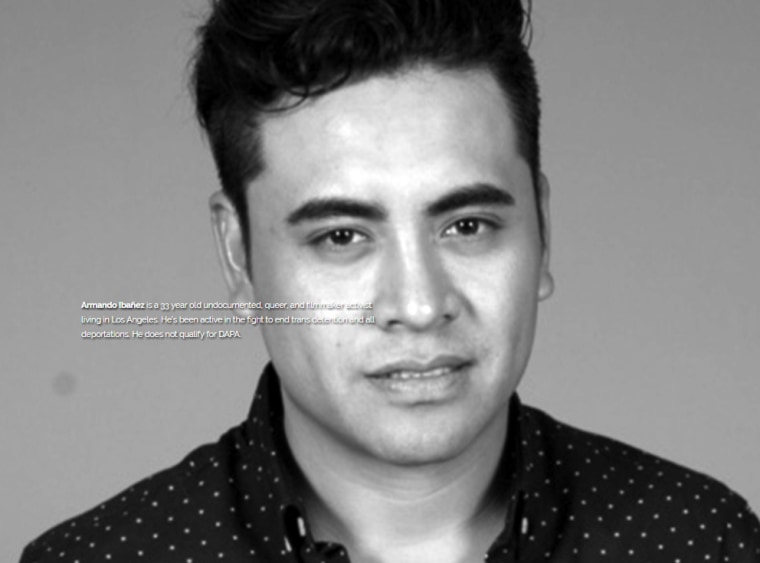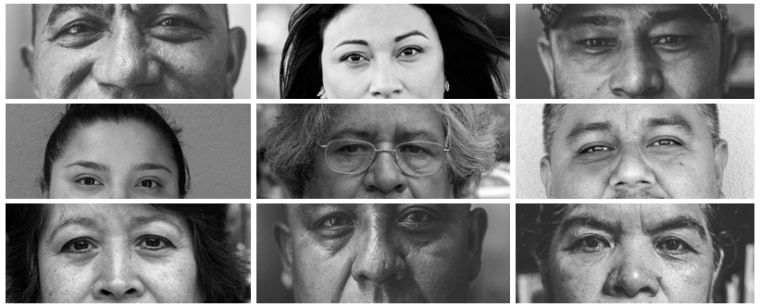Ahead of the Supreme Court’s decision on the constitutionality of expanded deportation relief programs, activists are shining a light on the undocumented immigrants who will not be affected by the decision — no matter the outcome of the hearing.
Activists with the #Not1More Campaign and Mijente created LosExcluidos.com to profile people who do not qualify for Pres. Barack Obama’s executive action programs.
The Excluded project is a photo story, in both English and Spanish, of undocumented immigrants and their stories, showing the faces of the people "excluded" from DACA and potentially DAPA deportation relief.

“We have had a long time to focus on the folks that are targeted and excluded from the executive actions,” said Mijente policy and legal director Tania Unzueta. “This project stems from conversations with different groups we work with and how we are going to respond to the Supreme Court’s decision.”
RELATED: 4 Years Later: Lives Built By DACA at Risk in 2016 Elections
Tuesday marks the fourth anniversary of Obama’s announcement of Deferred Action for Childhood Arrivals.
Unzueta said over the past four years, immigration reform activists have pushed for programs that include more undocumented immigrants. Those people she is fighting for are her parents, who do not qualify for DACA or the proposed DAPA program (currently on hold after a lawsuit and under review by the Supreme Court) because Unzeuta and her sister are not citizens or legal permanent residents.

“When we advocated for the DREAM Act, we were very conscious it was not going to affect my parents’ situation,” Unzueta said. “My mom always wanted the best for us and came to the U.S. so we could have a better chance, but I still feel guilty — and double guilty — because I get to benefit from the executive actions, but my parents randomly don’t qualify, and I am the reason why.”
The #Not1More campaign’s goal it to quell deportations to a point where they aren’t “held over communities as a constant threat,” Unzueta said.
RELATED: For These Latino Families, Supreme Court Immigration Case Is Personal

“The decision to leave some people out is purely political and it is not a legal restriction,” Unzueta said. “ Someone chose who is going to be let in and who will be let out of the executive actions. All of this is discretionary.”
Unzeuta explained the executive actions create a rift in immigrant communities between those who qualify, and those excluded.
“If there is a positive decision and the Supreme Court affirms president has this power, there is no reason why we cannot consider something that will benefit all undocumented people — not just a limited number of people.”

